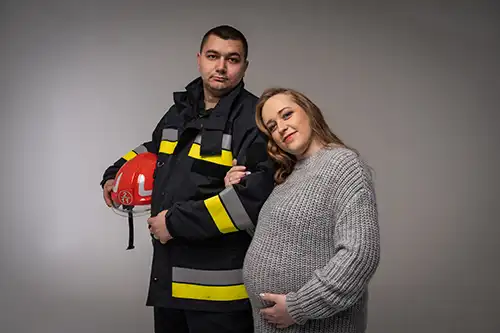AFFF Lawsuit FAQs
Attorneys Answer the Most Common AFFF Lawsuit Questions

On this page, you will find answers to common AFFF lawsuit questions that apply to most AFFF foam claims for kidney cancer, testicular cancer, thyroid disease, ulcerative colitis, prostate cancer, pancreatic cancer, bladder cancer, and liver cancer.
To discuss your case in detail with an attorney or ask further questions, contact our firm. Our team of lawyers handling AFFF lawsuit claims provides free, no obligation case review. Simply contact our firm and one of our experienced lawyers handling national AFFF lawsuit claims for cancer will contact you in the near future to answer your questions, completely free of charge.
Who Qualifies to file an AFFF Lawsuit?
One of the basic criteria to qualify as a plaintiff to file firefighter lawsuits is that you must have legitimate proof to show that you were exposed to fire fighting foam for an extended period of time. Secondly, you or a loved one must have been diagnosed with a qualifying type of cancer, including kidney cancer, testicular cancer, thyroid disease, ulcerative colitis, prostate cancer, pancreatic cancer, bladder cancer, and liver cancer.What does it cost to file an AFFF lawsuit for cancer?
Our law firm will represent all persons involved in an AFFF lawsuit on a contingency basis, meaning there are never any legal fees unless we win compensation in your case. To access your free, no-obligation consultation with an attorney handling AFFF lawsuits, use the online chat feature or contact form on this site. One of our lawyers for AFFF cancer lawsuits will contact you to answer any of your questions.If you developed cancer after repeated exposure to AFFF foam, you may be eligible for compensation.
How much time do I have to file an AFFF cancer lawsuit?
Most states have AFFF foam lawsuit time limits; however, the majority of all persons having developed cancer from AFFF exposure will fall within those time limits if they contact an attorney in the near future. For specific time limits for your claim, please fill out the form at right and one of our attorneys will contact you as quickly as possible, usually within the hour.Which kinds of cancer qualify for AFFF foam claims?
At this time, our attorneys are accepting cases related to kidney cancer, testicular cancer, thyroid disease, ulcerative colitis, prostate cancer, pancreatic cancer, bladder cancer, and liver cancer from exposure to AFFF fire fighting foam.Who is most at risk for developing cancer from AFFF?
The cancer-causing chemicals commonly found in AFFF build up over time and repeated exposures. Scientific studies show even small quantities of PFAS chemicals cause harm, and the risk for cancer increases with higer exposure. Persons who were exposed to PFAS chemicals in AFFF repeatedly over a significant period of time may face the highest risk for developing cancer.Does it cost anything for you to review my case?
We will always listen to your circumstances and give you our analysis of your case without any cost or further obligation.Attorneys handling AFFF lawsuit claims nationwide provide free case reviews with no obligation.
How long have AFFF manufacturers known about the dangers posed by PFAS chemicals?
AFFF foam was developed in the 1960s by 3M and the U.S. military. Shortly after AFFF was made the industry standard across emergency response and training throughout the military in 1969, Navy and 3M scientists warned that the contents of AFFF foam could be dangerous to humans.How do I know if I was exposed to cancer-causing chemicals in AFFF foam?
If you served in the military or as a fire fighter in settings where AFFF was utilized, there is a good chance you were exposed to PFAS substances on the job. Repeated exposure to AFFF foam is thought to increase the risk for cancer.
Aren't most drug and products liability lawsuits just class action lawsuits where the plaintiff receives very little money?
National AFFF lawsuit claims for cancer have been consolidated as MDL, or Multi-District Litigation, where each plaintiff receives a settlement based upon the individual injuries and damages incurred by each plaintiff. This process increases the efficiency of processing vast numbers of cases all related to one common harm.We're not the type of people who sue; do we really need to file a lawsuit?
If a member of your family suffered a serious injury or health problem as a result of a dangerous product or drug, long-term, or even lifelong, medical care may be required. This could be incredibly expensive and since medical costs are continually rising may be largely unknown at the time of settlement or trial. If a member of your family died due to a defective product or dangerous drug, no amount of money can undo that wrong. It is our fervent hope that every lawsuit we file can serve to make the parties responsible take note of the loss and pain their actions have caused. When that fails to lead to a safer world, we rely on the threat of large settlements to make them do the right thing. Unfortunately, in all too many cases it is only the fear of lawsuits and large settlements and verdicts that results in lasting change.


AFFF Lawsuit Information in Your City:
Atlanta, GA
Austin, TX
Baltimore, MD
Birmingham, AL
Boston, MA
Buffalo, NY
Charlotte, NC
Chicago, IL
Cincinnati, OH
Cleveland, OH
Columbus, OH
Dallas, TX
Denver, CO
Detroit, MI
Fresno, CA
Hartford, CT
Honolulu, HI
Houston, TX
Indianapolis, IN
Jacksonville, FL
Kansas City, MO
Las Vegas, NV
Los Angeles, CA
Louisville, KY
Memphis, TN
Miami, FL
Milwaukee, WI
Minneapolis, MN
Nashville, TN
New Orleans, LA
New York, NY
Oklahoma City, OK
Orlando, FL
Philadelphia, PA
Phoenix, AZ
Pittsburgh, PA
Portland, OR
Providence, RI
Raleigh, NC
Richmond, VA
Riverside, CA
Rochester, NY
Sacramento, CA
Salt Lake City, UT
San Antonio, TX
San Diego, CA
San Francisco, CA
San Jose, CA
Seattle, WA
St. Louis, MO
Tampa, FL
Tucson, AZ
Tulsa, OK
Virginia Beach, VA
Washington, DC
Austin, TX
Baltimore, MD
Birmingham, AL
Boston, MA
Buffalo, NY
Charlotte, NC
Chicago, IL
Cincinnati, OH
Cleveland, OH
Columbus, OH
Dallas, TX
Denver, CO
Detroit, MI
Fresno, CA
Hartford, CT
Honolulu, HI
Houston, TX
Indianapolis, IN
Jacksonville, FL
Kansas City, MO
Las Vegas, NV
Los Angeles, CA
Louisville, KY
Memphis, TN
Miami, FL
Milwaukee, WI
Minneapolis, MN
Nashville, TN
New Orleans, LA
New York, NY
Oklahoma City, OK
Orlando, FL
Philadelphia, PA
Phoenix, AZ
Pittsburgh, PA
Portland, OR
Providence, RI
Raleigh, NC
Richmond, VA
Riverside, CA
Rochester, NY
Sacramento, CA
Salt Lake City, UT
San Antonio, TX
San Diego, CA
San Francisco, CA
San Jose, CA
Seattle, WA
St. Louis, MO
Tampa, FL
Tucson, AZ
Tulsa, OK
Virginia Beach, VA
Washington, DC
AFFF Lawsuit Information in Your State:
Alabama
Alaska
Arizona
Arkansas
California
Colorado
Connecticut
Delaware
Florida
Georgia
Hawaii
Idaho
Illinois
Indiana
Iowa
Kansas
Kentucky
Louisiana
Maine
Maryland
Massachusetts
Michigan
Minnesota
Mississippi
Missouri
Montana
Nebraska
Nevada
New Hampshire
New Jersey
New Mexico
New York
North Carolina
North Dakota
Ohio
Oklahoma
Oregon
Pennsylvania
Rhode Island
South Carolina
South Dakota
Tennessee
Texas
Utah
Vermont
Virginia
Washington
West Virginia
Wisconsin
Wyoming
Alaska
Arizona
Arkansas
California
Colorado
Connecticut
Delaware
Florida
Georgia
Hawaii
Idaho
Illinois
Indiana
Iowa
Kansas
Kentucky
Louisiana
Maine
Maryland
Massachusetts
Michigan
Minnesota
Mississippi
Missouri
Montana
Nebraska
Nevada
New Hampshire
New Jersey
New Mexico
New York
North Carolina
North Dakota
Ohio
Oklahoma
Oregon
Pennsylvania
Rhode Island
South Carolina
South Dakota
Tennessee
Texas
Utah
Vermont
Virginia
Washington
West Virginia
Wisconsin
Wyoming
Privacy Notice: This site uses cookies for advertising, analytics and to improve our site services. By continuing to use our site, you agree to our use of cookies. For more information, see our cookie and privacy policy.
